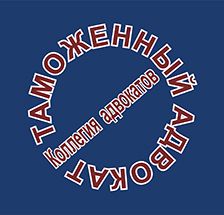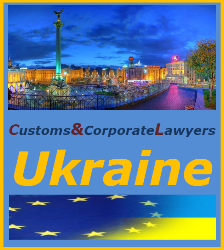Royalties: Will the clarity?
Author: Irina L. Vakhterova
Director of Legal Affairs of Corporate Lawyers Group
Issues related to the inclusion of royalties in the customs value of imported goods, is always one of the most complex and controversial in determining the customs value of the goods. This is primarily due to a controversial judicial practice, different interpretation of the legislation by the customs authorities in the absence of any clear explanation.
Indeed, at present the issue of inclusion of license and other similar payments in the customs value is governed solely by the agreements between the Government of the Russian Federation, the Government of the Republic of Belarus and the Government of the Republic of Kazakhstan dated 25 January 2018 on the determination of the customs value of goods transported across the customs border of the Customs Union (hereinafter - Agreement ). Article 5 of the Agreement defines the additional charges to the price actually paid or payable for the goods. On the basis of paragraph 7 of Article 5, in determining the customs value of imported goods under the transaction value with them to the price actually paid or payable for the goods, are added to the license and other similar payments for the use of intellectual property (including payments for patents, trademarks, copyright), which are being evaluated (imported) goods and which directly or indirectly made or required to make the buyer as a condition of the sale of the goods being valued, to the extent not included in the price actually paid or payable for the goods.
In determining the customs value of imported goods shall not be added to the price actually paid or payable:
a) payments for the right of reproduction (replication) of imported goods in the customs territory of the Customs Union;
b) payments for the right to distribute or resell the imported goods if such payments are not a condition of sale of the imported goods for export to the customs territory of the Customs Union.
We can not agree that the present wording of the Agreement is very general and across a variety of intellectual property, as well as the forms and conditions of license agreements may not be sufficient for an unambiguous decision on the inclusion of royalties in the customs value of the goods in a given situation.
Apparently, given the complexities involved as participants of foreign economic activity, and the customs authorities in dealing with the inclusion of royalties in the customs value, in the Eurasian Economic Commission (hereinafter - ECE) currently under discussion rules include licensing and other similar payments for the use of facilities intellectual Property in the customs value of imported goods. In this case, as it became known, the rules are not only explanations, but also specific examples of emerging most situations. Let's try to analyze some of them to understand the basic approaches to the problem of ECE.
So, in general terms, the situation is as follows, the manufacturer of the goods and the buyer are subsidiaries with respect to the legal owner of the trademark, being placed on the product. The contract of sale between the seller and the buyer does not impose an obligation to pay royalties. The purchaser under a separate agreement shall pay royalties to the right holder. It would seem, from the point of view of the Agreement is necessary to analyze all existing contracts, to establish how payments are being evaluated (imported) goods and whether these payments a condition of sale of the goods being valued. However, the problem is solved by the developer much easier, namely, as a manufacturer and franchisor are related persons within the meaning established by the Agreement, the fact that between the producer and the buyer, as well as between the producer and the copyright does not have any contractual obligations, does not preclude the that royalties are a condition of the sale of goods. A further concluded that, subject to royalties addition to the price actually paid or payable. In other words, the inclusion or non-inclusion of royalties in the customs value of imported goods depends on whether the person is related or not.
I think it makes no sense to cite the provisions of the Agreement on which persons are affiliated parties, but let me remind you that the conditions under which persons are considered to be interrelated, are interpreted broadly. In this regard, there is some concern that the presence of such an example in the rules will lead to the fact that, in practice, the relationship of individuals, regardless of their contractual relationship will be automatically interpreted by the customs authorities as a condition for inclusion license or other fees in the customs value of the goods. However, in my opinion, such an approach is contrary to the provisions of the Agreement.
Here is another interesting example related to the payment of royalties in respect of goods used in the manufacture of the licensed products in the territory of the Customs Union. The Russian company is a manufacturer of goods under a trademark owned by a foreign holder. The manufacturer pays royalties to the right holder of 2.5% of sales. In this case, one of the ingredients for the production of goods purchased from the copyright holder. I must say that in this situation, in most cases, the customs authorities insisted on the inclusion of royalties in the customs value of imported ingredients. Arises only question is how to calculate such payment. In the discussed draft regulations stipulate that in this situation, royalties should not be included in the customs value of the imported ingredient purchased from the copyright holder. However, there is a small disclaimer that this ingredient can be purchased in other foreign suppliers or suppliers in the customs territory of the Customs Union. From the discussions it is not clear how this condition is essential in deciding whether to include or not to include license fees in the customs value of the goods. I want to believe that the general principle of the Agreement that the license fees are included in the customs value only if they are related to the imported goods, in this case, will be respected.
Certainly, the fact that ECE is actively discussing and is preparing regulations include licensing and other similar payments for the use of intellectual property rights in the customs value of imported goods, is very significant in terms of the desire of ECE to regulate the controversial issues. While the project is still under development and discussion, too early to say how it will be adapted to the reality and help to understand the participants of foreign trade and customs authorities in this complex matter.

